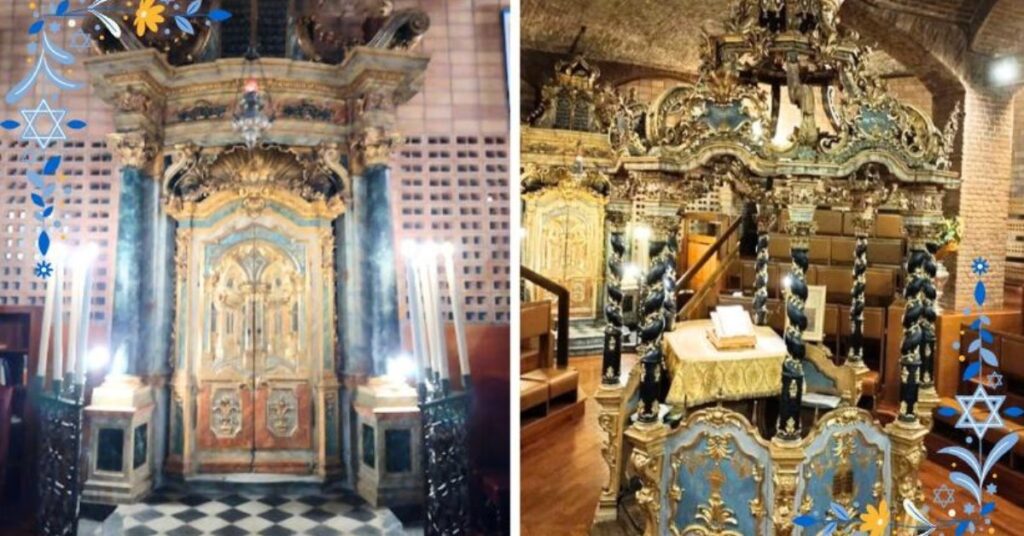Nestled in the heart of Turin, Italy, the Museo Ebraico Di Torino (Jewish Museum of Turin) stands as a significant testament to the rich and vibrant history of the Jewish community in the city. Established in 2006, the museum not only preserves the memory of Jewish life in Turin but also serves as an educational platform that highlights the contributions of Jews to Italian culture and society over the centuries. This article delves into the museum’s historical background, exhibits, educational initiatives, and its role in preserving Jewish heritage in Italy.
Historical Context
The Jewish Presence in Turin
The Jewish community in Turin has a storied history that dates back to the 15th century. The community began to flourish during the Renaissance, particularly under the rule of the House of Savoy. Over the centuries, Jews in Turin contributed significantly to the local economy, culture, and intellectual life, establishing themselves as merchants, artisans, and scholars.
However, this vibrant community faced challenges, including persecution and discrimination. The establishment of the Jewish ghetto in the 17th century marked a period of segregation, but it also served as a hub of cultural and religious life. The ghetto was abolished in the late 18th century, leading to greater integration of Jews into broader society.
The Role of the Museo Ebraico Di Torino
The Museo Ebraico Di Torino was born out of a desire to preserve and share this complex history. The museum is housed in the historic building of the Collegio Rabbinico, which was once the heart of Jewish education in the region. By creating a space dedicated to the exploration of Jewish life, the museum aims to foster understanding and appreciation of the Jewish experience in Turin and beyond.
Exhibits and Collections
Permanent Collection
The museum’s permanent collection is a treasure trove of artifacts that illustrate the Jewish experience in Turin and Italy as a whole. Visitors can explore a range of items, including religious artifacts, historical documents, photographs, and art pieces that span several centuries.
Ritual Objects
One of the highlights of the museum is its collection of ritual objects, which showcase the rich traditions of Jewish religious practice. Visitors can view intricately designed menorahs, Torah scrolls, and ceremonial utensils used during significant events in the Jewish calendar. These objects not only serve a functional purpose but also embody the artistic and cultural expressions of Jewish artisans throughout history.
Historical Documents
The museum houses a variety of historical documents that chronicle the lives of Jews in Turin. These include letters, community records, and legal documents that provide insight into the social, economic, and political dynamics of Jewish life in the city. Through these documents, visitors can gain a deeper understanding of the challenges faced by the community and their resilience in the face of adversity.
Art and Photography
In addition to religious artifacts and historical documents, the museum features a collection of artworks and photographs that celebrate Jewish culture. The works of Jewish artists and photographers reflect the diverse experiences and identities within the Jewish community. The museum also hosts temporary exhibitions that focus on contemporary issues facing Jews today, ensuring that the dialogue around Jewish identity remains relevant.
Special Exhibitions
The Museo Ebraico Di Torino regularly hosts special exhibitions that delve into specific themes or events in Jewish history. These exhibitions often feature collaborations with contemporary artists and scholars, further enriching the museum’s offerings. Topics may include the Holocaust, Jewish contributions to Italian art and literature, and the impact of migration on Jewish identity.
Educational Initiatives
Guided Tours and Workshops
To enhance the visitor experience, the Museo Ebraico Di Torino offers guided tours led by knowledgeable educators. These tours provide context and depth to the exhibits, allowing visitors to engage with the material in a meaningful way. Additionally, the museum organizes workshops and educational programs for schools and community groups, promoting awareness and understanding of Jewish culture and history.
Outreach Programs
The museum is committed to fostering dialogue and collaboration with diverse communities. Outreach programs aim to bridge cultural divides and promote interfaith understanding. By engaging with schools, universities, and cultural organizations, the museum seeks to raise awareness about the historical and contemporary experiences of Jews in Italy and beyond.
The Museum’s Impact
Cultural Preservation
The Museo Ebraico Di Torino plays a vital role in preserving Jewish heritage in Italy. By documenting and showcasing the history of the Jewish community, the museum ensures that future generations have access to this rich legacy. The preservation of artifacts, documents, and oral histories contributes to a more comprehensive understanding of Italy’s diverse cultural tapestry.
Fostering Understanding
In a world where cultural misunderstandings and prejudices persist, the museum serves as a beacon of hope. By promoting education and dialogue, the Museo Ebraico Di Torino fosters understanding and appreciation of Jewish culture among visitors of all backgrounds. The museum’s commitment to inclusivity is evident in its programs that reach out to diverse communities, encouraging collaboration and mutual respect.
Community Engagement
The museum is deeply embedded in the local community, hosting events, lectures, and cultural activities that invite participation from all residents of Turin. These initiatives create opportunities for dialogue and learning, allowing individuals to connect with their neighbors and explore shared histories.
Visitor Experience
Practical Information
Located in the heart of Turin, the Museo Ebraico Di Torino is easily accessible to both locals and tourists. The museum is open year-round, offering visitors a chance to explore its collections at their own pace. For those interested in a deeper understanding of the exhibits, guided tours are available in multiple languages.
Visitor Amenities
The museum is equipped with visitor amenities, including a gift shop that offers a range of books, souvenirs, and traditional Jewish crafts. The shop serves as a resource for those interested in further exploring Jewish culture and history. Additionally, the museum’s café provides a welcoming space for visitors to relax and reflect on their experience.
Conclusion
The Museo Ebraico Di Torino is more than just a museum; it is a vital institution that encapsulates the enduring presence of the Jewish community in Turin. Through its exhibits, educational initiatives, and community engagement, the museum preserves the rich tapestry of Jewish life and fosters understanding among diverse audiences. As visitors embark on a journey through centuries of history, they are reminded of the resilience, creativity, and contributions of the Jewish people, not only in Turin but also in the broader context of Italian culture. In an ever-evolving world, the Museo Ebraico Di Torino stands as a testament to the importance of preserving and celebrating cultural heritage, ensuring that the stories of the past continue to resonate with future generations.







